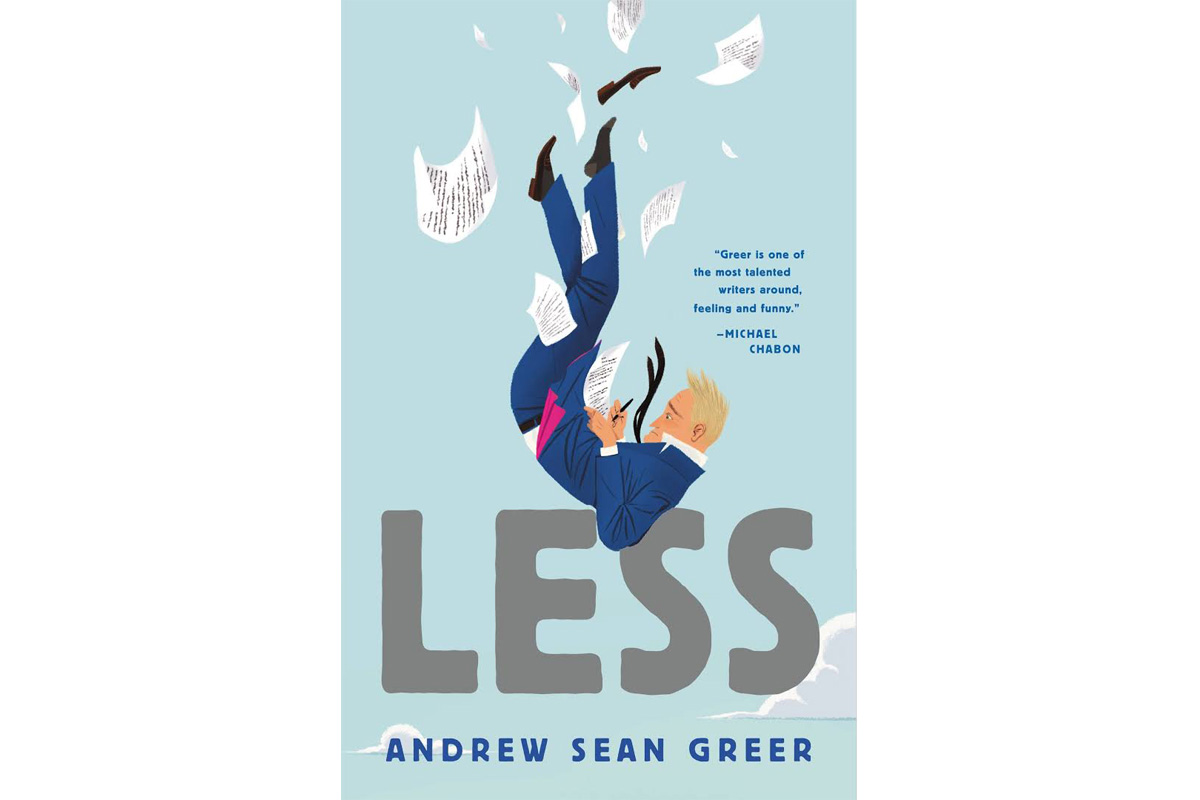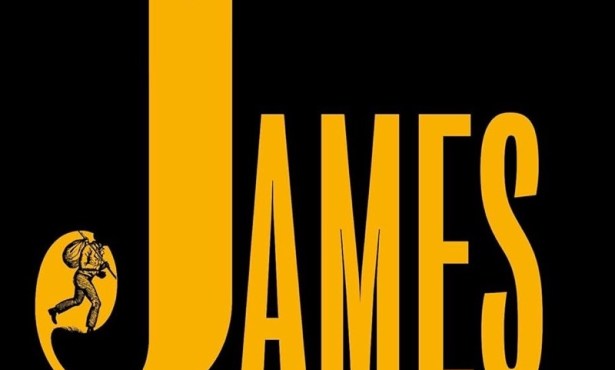Andrew Sean Greer’s ‘Less’
Book Is Funny from Beginning to End

Arthur Less is about to turn 50, his lover of nine years is getting married to someone else, and his latest book, Swift, is, according to his agent, “Too wistful. Too poignant.” In Andrew Sean Greer’s new novel, Less, the response of his protagonist to this conjunction of life crises is to piece together a trip around the world: a conference in Mexico City, an obscure awards ceremony in Italy, a luxury adventure in the Moroccan desert, a writer’s retreat in India, and a series of restaurant reviews in Japan.
Greer takes full advantage of this conceit to put his appealingly hapless character in a maximum number of comic situations. In New York, for instance, Less is given a hotel room (but no pay) to interview science fiction writer H.H.H. Mandern in front of an adoring audience. The author has recently revived “his wildly popular Holmesian robot, Peabody,” but unfortunately, on the evening of the interview Mandern suffers from food poisoning. Less manages to successfully navigate the event, although, as he is wearing an astronaut’s helmet throughout, “nobody will know who he is.”
Even funnier are the episodes in Berlin, where Greer provides translations of Less’s defective German. “Good morning,” he greets his publisher when calling to complain that his book jacket biography makes him a year older than he actually is. “Here is Mr. Arthur Less. There is a fence in my book.” Later, when his publisher informs him that he will be giving a late-night reading, Less responds: “But it is a mental illness! Who will come to me at eleven at night?”
As these excerpts suggest, the satire is relatively mild, although there are plenty of zingers to go around, including some at the expense of the “Russian River School” — a thinly disguised version of the Beats. The most pointed criticism, however, is reserved for Less — and, by extension, Greer himself. One acquaintance asks Less if he really expects readers to sympathize with a “white middle-aged American man walking around with his white middle-aged American sorrows?” “Even gay?” Less asks, but another acquaintance tells Less he is a “bad gay” — his characters are insufficiently rewarded for their suffering. “Inspire us,” he tells Less. “Aim higher.”
Ultimately, Greer does just that. Less realizes that Swift must become a comedy rather than a tragedy, and the revised fictional novel bears a striking resemblance to Less — a book that is consistently funny from beginning to end.



